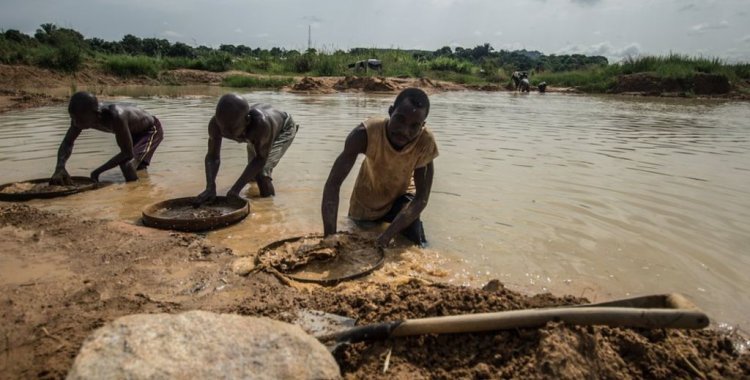Wilson Chimoco stressed that the bank VTB Africa, which operates in Angola, is being affected and has already warned its customers about the limitations on transactions, both in terms of payments and receipts in foreign currency.
"It is one of the banks that most transacts with the diamond sector, where Russia has very strong interests and which represents an important part of Russian investment in Angola", warned the banking analyst and professor of Macroeconomics at the Catholic University of Angola.
VTB is one of the Russian banks that the European Union has decided to exclude from the SWIFT interbank communication system, which underpins global transactions, as part of sanctions imposed in response to Russia's invasion of Ukraine.
The impact could affect diamond negotiations in international markets, and could affect some buyers with connections to Russia, estimated the economist.
"This reality will force Angola to look for other markets, other buyers for the diamonds explored and produced in Angola", he said.
The largest Angolan diamond mine, Catoca, responsible for extracting more than 75 percent of Angola's diamonds, is partially owned by Russian diamond company Alrosa, which had also announced its intention to invest in new areas, such as the Luaxi mining concession.
In addition to diamonds, the oil industry has also attracted Russian interest, namely in the area of refining, as well as the agricultural fertilizer sector.
"These are sectors in which the Russians have shown a certain appetite. They had also shown interest in the banking sector. Unfortunately, in recent times there has been a certain disinvestment and there was information that VTB itself was disinvesting in the banking sector", said Wilson Chimoco.
The increase in fuel and fertilizer prices, one of the products that Angola buys from Ukraine, will also have consequences for the country's economy.
Angola produces oil, but is heavily dependent on imports, not only refined fuels but also food, including those that are part of the basic food basket and will be affected by rising prices.
"Sooner or later, Angola will have to import inflation from third countries. A deceleration in prices was expected this year, which may not happen in view of the trend of rising prices in international markets, particularly in food products." ", noted the scholar.
However, the rise in oil prices may partially offset the negative effects if the trend continues and prices are higher than expected in the General State Budget (59 dollars per barrel).
"On the side of the increase in oil prices, the State wins, but on the import side of these refined products and others that are part of the national basic food basket, we can be penalized", he underlined.
Asked about Angola's position in the face of the conflict - Angola was one of the African countries that abstained from the United Nations resolution that condemned Russia for invading Ukraine - Wilson Chimoco recalled that Russia has been a partner of the country and has interests installed in Angola, which, in turn, also depends "heavily" on Russian investments in different sectors.
"I think that the position presented by the country with a certain equidistance, and not directly condemning Russia, is the most appropriate at the moment. Angola would lose more if it firmly condemns the Russians, but we will see how far it can go and if there will be a repositioning of the countries of the European Union", said the expert.
Wilson Chimoco noted that the ambassadors residing in Angola expressed solidarity with Ukraine and that there is a possibility that Angola's positioning "is seen as a certain alignment with Russia", which could also compromise some future investment intentions.
Another real risk is the repercussion on the world economy, if the conflict continues and drags uncertainty in international markets, which will also have an impact on Angola: "There may be a certain retraction, contrary to what would be expected for growth of the economy and that, after these five or six years of retraction, may not happen", he pointed out.
In the early hours of February 24, Russia launched a military offensive in Ukraine that, according to Kiev authorities, has already killed more than 2,000 civilians. The attacks also caused more than 1.7 million people to flee to neighboring countries, according to the UN.
The Russian invasion was condemned by most of the international community, which responded by sending weapons to Ukraine and reinforcing economic sanctions on Moscow.







